team
Supporting innovative technology through the "common-sense safety" principles we create together with our colleagues.

Technical Department,
Mechanical Design Section
Yutaro Kitamoto
Supporting innovative technology
through the "common-sense safety" principles
we create together with our colleagues.
The path I chose to return knowledge to society: the automotive industry.
In university, I majored in chemistry and conducted research on materials for fuel cells. During my years as a student, I was wondering what kind of job would allow me to apply what I had learned to society. The answer I arrived at was the indispensable role of cars in modern society. In today's world, where the value of sustainability has become commonplace, the demand for electric vehicles (EVs) is accelerating globally. Therefore, engaging in the development of low-environmental-impact power units, including fuel cells, is the best way to contribute to society and benefit people. With this in mind, I decided the path of my career.
In the beginning of my career, I worked in the safety evaluation team related to hybrid cars, in which we strived to comply with regulations such as those for fire resistance. When the battery I evaluated was completed, I felt a great sense of achievement and fulfillment. This experience made me realize that I wanted to continue working on battery development and achieve even greater goals, which led me to my current position in the company.
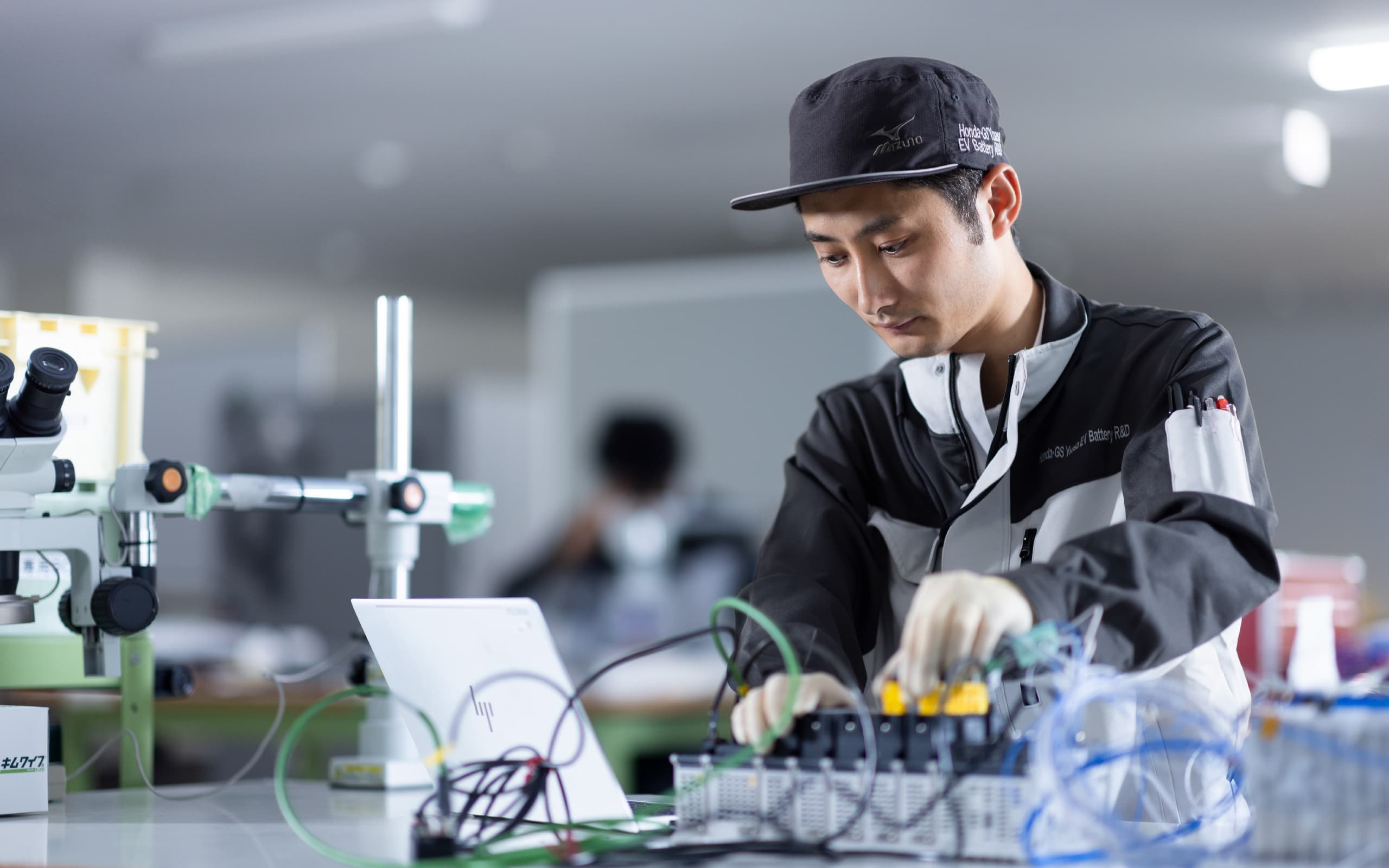
My knowledge of batteries grows deeper day by day.
Batteries that power EVs are not made from a single huge battery. We use a number of small components called cells to form a module, and only by creating a pack of multiple modules can we create batteries for use in automobiles and other vehicles. I am in charge of research on “thermal propagation” as well as safety evaluation of this module.
Our company is developing lithium-ion batteries, which are also commonly used in smartphones. Just as smartphones heat up when used while charging or running high-load apps, lithium-ion batteries have the property of generating heat during use. My job is to suppress this heat generation before it leads to "thermal runaway," which causes ignition, to enhance product safety. Currently, I am focusing on research not on preventing heat generation but on thermal runaway suppression, which aims to prevent the spread of heat.
Thermal propagation occurs when one cell in a module heats up and this heat spreads to neighboring cells in a chain reaction. To prevent this from leading to ignition, I am conducting experiments day in, day out. Although I had experience in the field of safety evaluation, working with members who have deep knowledge of batteries has significantly increased my understanding of the products. Utilizing insights into the structures and manufacturing processes of cells, I am now able to take a more comprehensive approach to researching thermal propagation. It is because our company gathers engineers with different backgrounds that we can conduct research and development with diverse perspectives and strong drive.
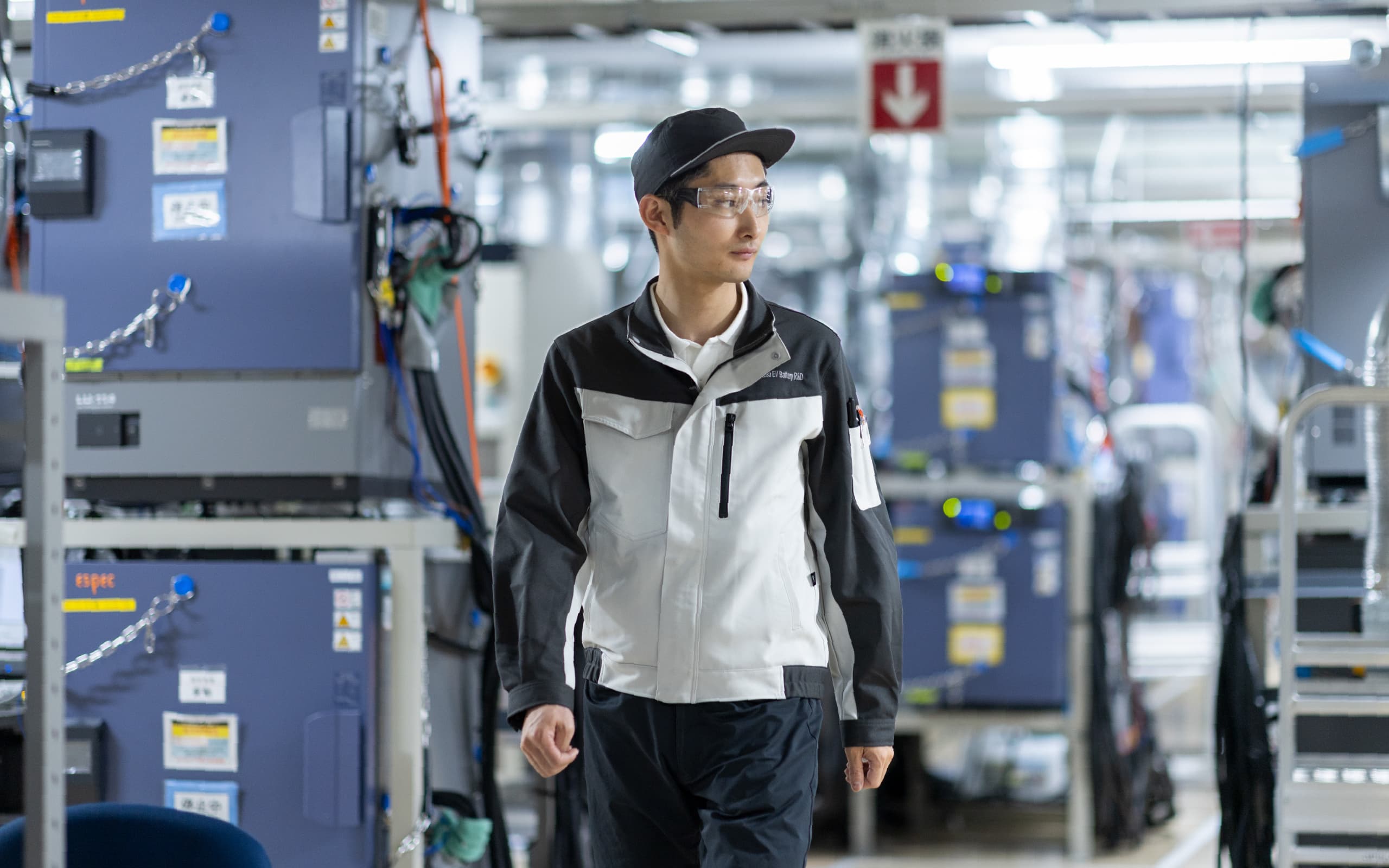
Looking beyond the world's best batteries to improve people's lives.
Our ultimate goal is not limited to developing batteries or implementing EVs in society. Ensuring stable access to electricity everywhere and at all times is fundamental to a safe, convenient, and worry-free society. When the 2011 Tohoku earthquake occurred, I was living in the Kanto region and experienced planned blackouts. I remember feeling the inconvenience of not having electricity and the anxiety of being in complete darkness at night. By delivering high-performance batteries to society, we aim to reduce inconvenience and anxiety in daily life, as well as during emergencies. This is the ultimate goal that our company aims to achieve.
When an innovative battery is completed, social attention will surely focus on its performance. The safety features that I will work to achieve may not receive much spotlight when it comes to the product characteristics. However, if our batteries aren't "naturally safe," they won't spread in society, and a more prosperous life won't be achieved. Therefore, I will continue to approach research and development with a sense of mission as a sort of unsung hero.
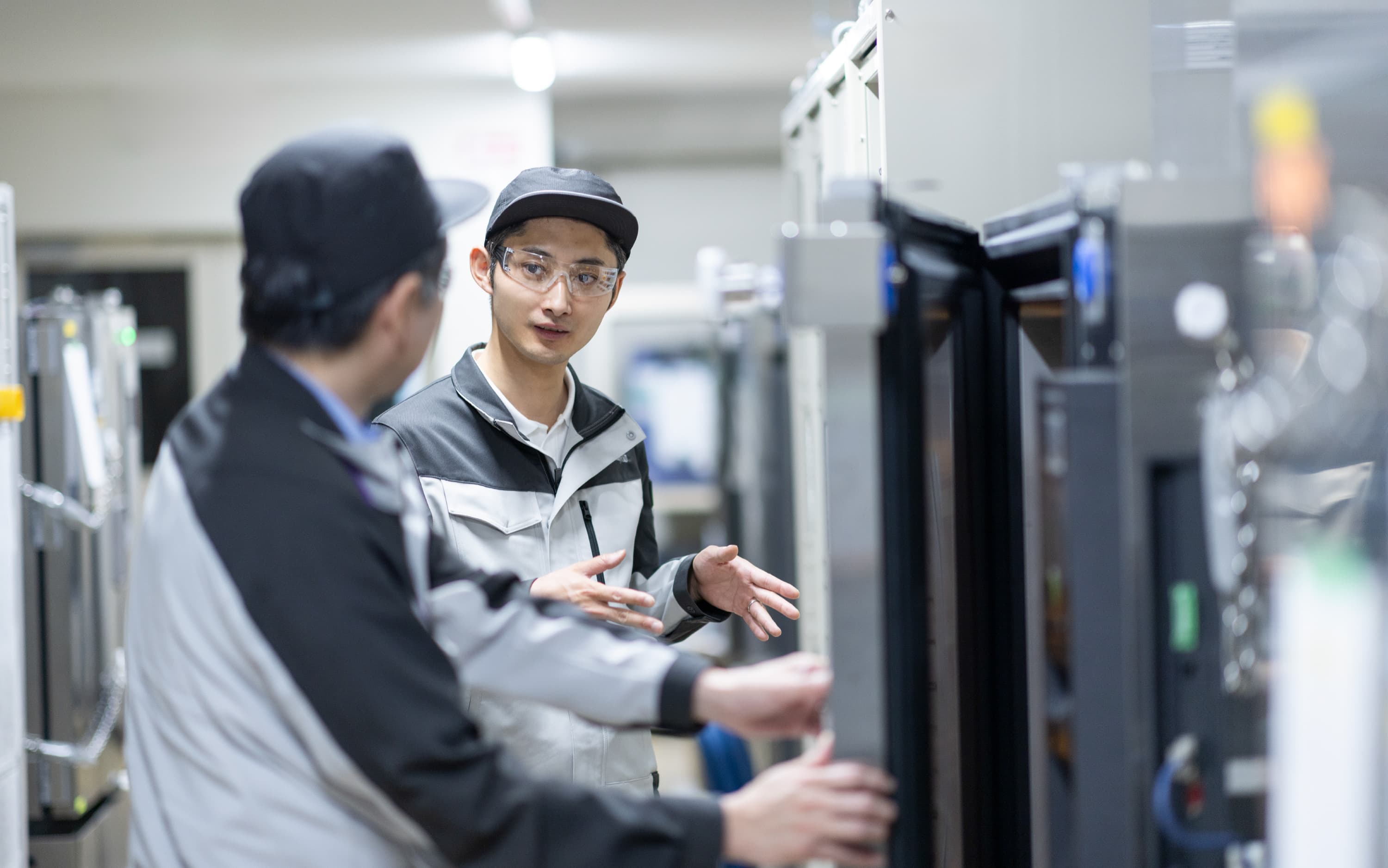
others
-
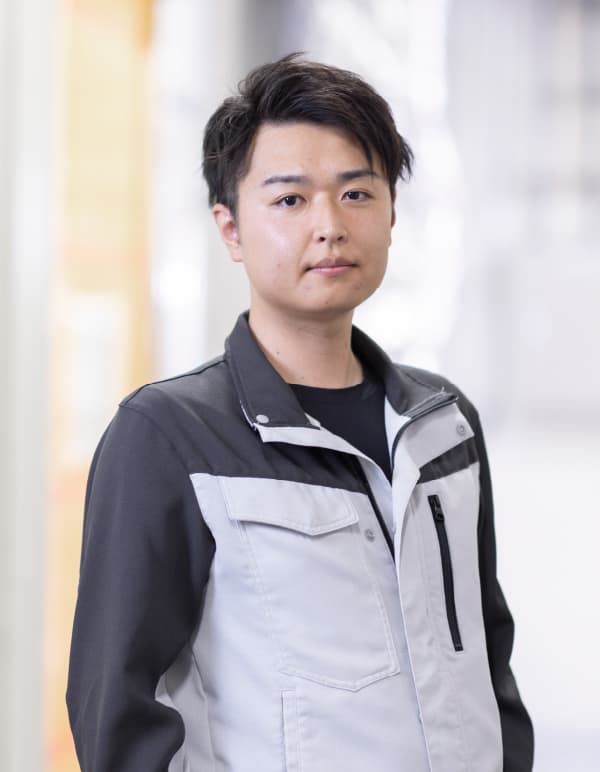
Pursuing "mass production," which is indispensable for the social implementation of technology, through trial and error every day.
Production Engineering Section,
Production Engineering DepartmentSoichiro Matsumoto
-
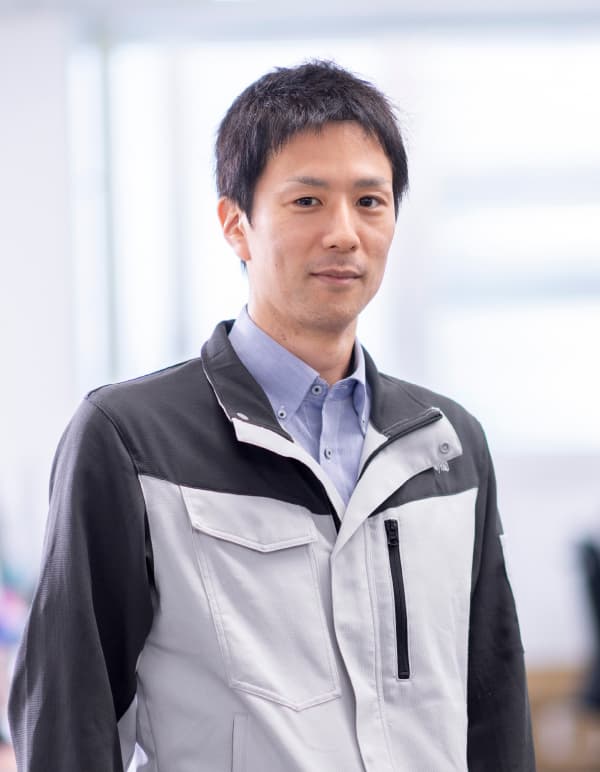
As someone involved in company operations from the upstream, I aim to be a key person driving business from the perspective of accounting and finance.
Business Planning Section, Business Planning and Administration Department
Takahiko Handa
-
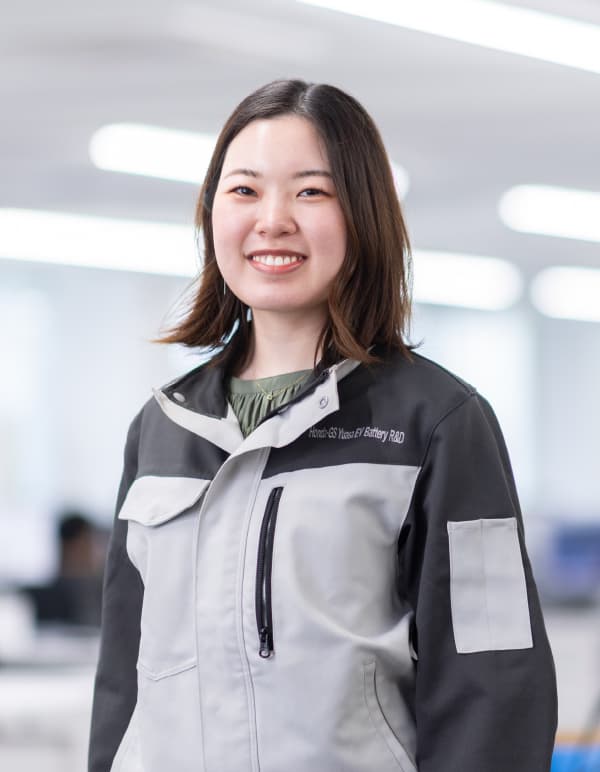
Creating the world's best batteries.
We put our full support behind passionate engineers every day.Human Resources and General Affairs Department
Amane Kadono
